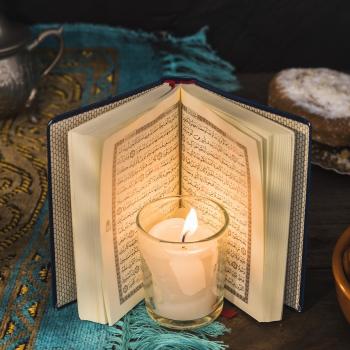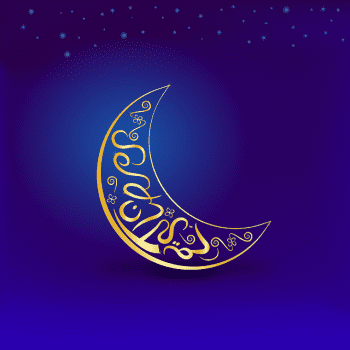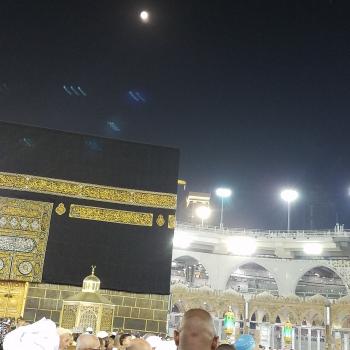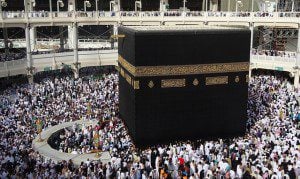

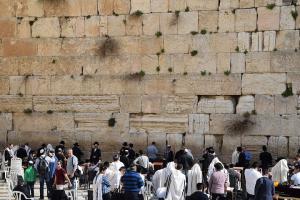 Let me start by stating what is not so controversial: Abraham is considered the father of monotheistic religions- Judaism, Christianity and Islam. He is a powerful unifying source, which is sadly still unrealized by and large.The question keeps popping up whether he was a Jew or Muslim or a Christian.
Let me start by stating what is not so controversial: Abraham is considered the father of monotheistic religions- Judaism, Christianity and Islam. He is a powerful unifying source, which is sadly still unrealized by and large.The question keeps popping up whether he was a Jew or Muslim or a Christian.
The first question you may ask is: does it really matter?
I think it still matters to some who hold him in high esteem and care whether he is “ours”, or “one of our type”.
Abraham, Avraham (or Avaram in Hebrew), or Ibrahim, as he is known in the Qur’an, is highly revered and an exalted prophet according to the Qur’an and is the second most-mentioned prophet (sixty-nine times) after Moses. There is a chapter named Ibrahim after him (chapter 14). Prophet Abraham is considered the father of the monotheistic religions: Judaism, Christianity, and Islam. However, both the Qur’anic and biblical commentators point out that he was not the “pioneer” of the concept of monotheism, which had preceded Abraham. Yazidis, a persecuted community in the Levant, is also monotheistic.
God’s Special favors on Abraham: Torah
As in the Qur’an, the Bible holds Abraham in high esteem. He has an exalted status among the followers of the Old Testament, as well as the New Testament. He is considered the father of the Jewish and Christian faiths. According to Genesis, his birth name was Abram (Av Aram), meaning “father of Aram,” or “exalted father,” which was changed by God to Abraham (Avraham), meaning “father of many (nations),” as God promised him that he would be the father of many nations. (Genesis 17:5) At the same time, God also changed the name of his first wife, Sarai (meaning “my princess”) to Sarah (meaning “princess to all nations of the world”).
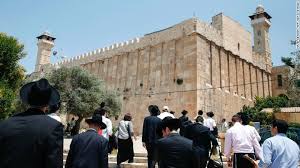
Tomb of Abraham
God’s first call to Abram is mentioned in Genesis chapter 12. God called on Abram to leave for the Promised Land. This journey took Abram from Ur to Haran (near the Turkey-Syria border today), to Schechem (West Bank of Israel today), to Bethel (West Bank), to Egypt, and eventually to Hebron (West Bank of Israel today).
Now the LORD said to Abram, “Go forth from your country, And from your relatives And from your father’s house, To the land which I will show you; And I will make you a great nation, And I will bless you, And make your name great; And so you shall be a blessing; And I will bless those who bless you, And the one who curses you I will curse. And in you all the families of the earth will be blessed.” Genesis 12:1–3
He is held in high esteem in the New testament also.
If his good deeds had made him acceptable to God, he would have had something to boast about. But that was not God’s way. For the Scriptures tell us, “Abraham believed God, and God counted him as righteous because of his faith. Romans 4:2-3
Abraham Not a Jew or a Christian: Qur’an’s Perspective
The Qur’an addresses the dispute among people whether Abraham was a “Jew,” a “Christian,” or a “Muslim”.
People of the Book! Why do you dispute about Abraham, when the Law [Torah] and the Gospel were not revealed till after him? 3:65
It further goes on to say:
Abraham was neither a Jew nor a Christian but he was [an] upright [man], a Muslim [submitter], and he was not one of the polytheists. Most surely the nearest of people to Abraham are those who followed him and this Prophet [Muhammad] and those who believe. And Allah is the guardian of the believers. 3:67–68
The same argument can be made about his being a “Muslim”. How could that be possible as he preceded Muhammad by thousands of years? Abraham being a “Muslim” comes with an asterisk.
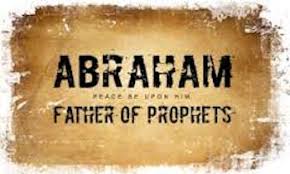 Islam: One Religion from Adam to Muhammad
Islam: One Religion from Adam to Muhammad
Many people around the world, including many Muslims, tend to think of Islam as being born in Arabia in the seventh century; they consider Muhammad as its “founder,” and the Qur’an as its Holy Book. Was Islam a result of Jewish and Christian influence on Muhammad? Did it start as an independent religion and borrow some concepts from the other two monotheistic religions prevalent in Arabia at the time? A review of the Qur’an, however, would reveal a broader perspective on Islam and “Muslims”.
And We gave Moses the Book, in order that they might receive guidance. And We made the son of Mary and his mother as a Sign: We gave them both shelter on high ground, affording rest and security and furnished with springs. 23:49–50
After these verses, the message is put in perspective in the next set of verses:
O messengers! [Note the plural used] Eat of pure things and do good deeds, certainly I have knowledge of all your actions. In fact, your religion is one religion, and I am your Lord: so fear Me Alone. Yet people have divided themselves into factions and each faction rejoices in its own doctrines—well! Leave them in their heedlessness for an appointed time. 23:51–53
The universality of “Islam” is addressed in other places in the Qur’an as well:
The same religion has He established for you [meaning Muhammad] as that which He enjoined on Noah—that which We have sent by inspiration to you—and that which We enjoined on Abraham, Moses, and Jesus: Namely, that you should remain steadfast in religion, and make no divisions therein: to those who worship other things than God, hard to the unbelievers is that which you call them to. God chooses to Himself those whom He pleases, and guides to Himself those who turn (to Him). 42:13
Verily! This, your religion, is one religion, and I am your Lord, so worship Me. 21:92
Islam: Religion of Abraham (Deen-e-Ibrahim)
The Qur’an describes Islam as a universal religion with broader meaning as well as the Dín al-Ibrahim, or the religion of Abraham. There are numerous references to “this religion” as the “way of Abraham” and that he, as well as his descendants, were Muslims, as defined by the Qur’an.
And who forsakes the religion of Abraham but he who makes himself a fool, and most certainly We chose him in this world, and in the hereafter he is most surely among the righteous. When his Lord said to him, Be a Muslim (submit), he said: “I submit myself to the Lord of the worlds.” 2:130–131
And this message echoes the one in verse 42:13 quoted earlier, regarding making no distinction between the prophets:
And they say: Be Jews or Christians, you will be on the right course. Say: No (we follow) the religion of Abraham, the upright (true), and he was not one of the polytheists. Say: We believe in God and (in) that which had been revealed to us, and (in) that which was revealed to Abraham and Ishmael and Isaac and Jacob and the tribes, and (in) that which was given to Moses and Jesus, and (in) that which was given to the prophets from their Lord, we do not make any distinction between any of them, and to Him do we submit. 2:135–136

This ‘one religion” sees human race as children of Adam- Abraham being the father of the faithful. In its simplest form, it calls for belief in One God, and commands the faithful do good to others.
The debate about Abraham’s “religion” should not divide us, but bring us together. Like the verse 3:65 says, why dispute about Abraham? Why act like dysfunctional family of Abraham and fight each other? A more appropriate question is: why do we not unite under the umbrella of our patriarch?
So let’s celebrate him together, act like a functional family. The reverence for Abraham should bring us together, not pull us apart.
Portions of the post were adapted from my second book, The Three Abrahamic Testaments.








